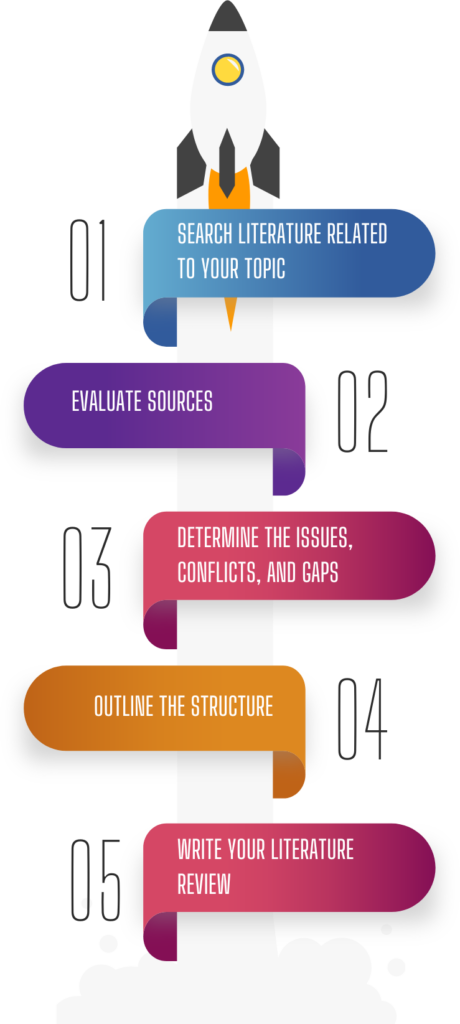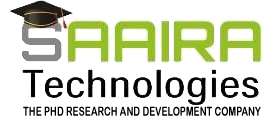Literature Review Writing
To write a literature review, the first step is to gather existing literature on a topic, then summarize and analyze it. Critical evaluation and identifying knowledge gaps are essential for a comprehensive analysis.

Literature Review Writing
A literature review involves examining academic materials related to a particular subject. This type of review provides a broad overview of the state of the field, allowing you to identify relevant ideas, approaches, and gaps in the literature. You can then use this information to inform your own article, thesis, or dissertation subject.
How can I go about Literature Review Writing?
Firstly, “Lorem Ipsum” is a placeholder text commonly used in the printing and typesetting industry. Since the 1500s, it has been the industry’s standard dummy text. Despite being derived from scrambled Latin words, it has survived the transition to electronic typesetting and remains widely used today.
Regarding literature review writing, the scale of your project plays a vital role in determining the length and depth of your literature analysis. While there is no set formula for how many sources to include, it is important to use your discretion and seek guidance from your teacher about the standards. For instance, if you are writing a 10-page argument paper, you may have space to evaluate 5-6 sources as you establish your case.
Goal of Literature Review Writing: Understanding the Purpose of Conducting a Literature Review.
When writing a thesis, dissertation, or research paper, it is essential to place your study within the existing body of knowledge. Carrying out a literature review will probably be required to accomplish this. By conducting a literature review, you can utilize existing research to:
- gain a deeper understanding of the research topic
- identify gaps in the current knowledge base
- evaluate the strengths and weaknesses of previous research
- establish the significance of your research question or hypothesis
- inform the direction of your own research by identifying potential avenues for further investigation.
Therefore, conducting a literature review is a critical component of Literature Review Writing.

Crafting a Strong Introduction: A Critical Component of Written Work.
When conducting a literature review, it is important to:
- Start by defining or identifying the broad subject, problem, or area of interest. This provides an acceptable framework for the study and helps to guide the review process.
- Point out broad patterns in what has been written about the issue, such as:
- Disagreements in theory, technique, evidence, and conclusions
- Shortcomings in scholarly investigation and academic endeavors.
- A particular problem or novel viewpoint that is of urgent importance to the research topic.
- Explain the criteria that will be utilized in assessing and comparing the literature.
- Clearly outline the order in which the literature will be reviewed, and provide your own motivation or point of view.
- To ensure transparency, justify the inclusion or exclusion of specific literature in the review, thereby defining the scope of the analysis.
By following these steps, you can conduct an effective literature review that will inform and support your research project.
Writing the Body of the Literature Review
When sorting research studies and other forms of literature (reviews, theoretical articles, case studies, etc.), it is important to:
- Group them based on elements that are shared by all of them, such as the use of qualitative vs quantitative methods, the authors’ findings, a clear goal or target, chronology, etc.
When summarizing individual studies or publications, remember that:
- Space (length) signifies relevance, so provide as much or as little information as each warrants based on its relative value in the literature.
To help the reader grasp comparisons and analyses, it is also important to:
- Use powerful “umbrella” phrases at the beginning of paragraphs.
- Include “signposts” all throughout.
- Include succinct “so what” summary statements at key places in the review.
By following these guidelines, you can effectively organize and present the literature in your literature review to provide a clear and insightful analysis of the topic.
Summarizing the Literature Review
When writing a literature review, it is important to:
- Summarize the key contributions made by important research and publications to the body of knowledge under examination, keeping the introduction’s topic in mind.
- Assess the “state of the art” for the body of information under evaluation, highlighting significant methodological faults or research gaps, contradictions between theory and results, and areas or topics that need further investigation.
- In the conclusion, address how the primary focus of your literature review connects to a broader area of study, which may include a specific discipline, a scientific practice, or a professional field.
When discussing the contributions of research and publications, consider incorporating transitional phrases like “furthermore,” “moreover,” or “in addition” to facilitate the discussion. Similarly, use phrases like “despite these findings,” “however,” or “on the other hand” to highlight areas of methodological faults or research gaps. Finally, use phrases like “in summary” or “to conclude” to signal that you are wrapping up your literature review. For more guidance on writing critical reviews, consult our handouts on Reading a Book to Review It or Writing a Critical Review of a Nonfiction Book or Article.
Reach out to us at www.saairatechnologies.com or give us a call at 9361223829 if you need assistance with the journal paper revision of your research.
This article delves deep into how Saaira Technologies supports researchers in crafting outstanding Finance PhD research papers, offering insights, tools, and actionable strategies.


